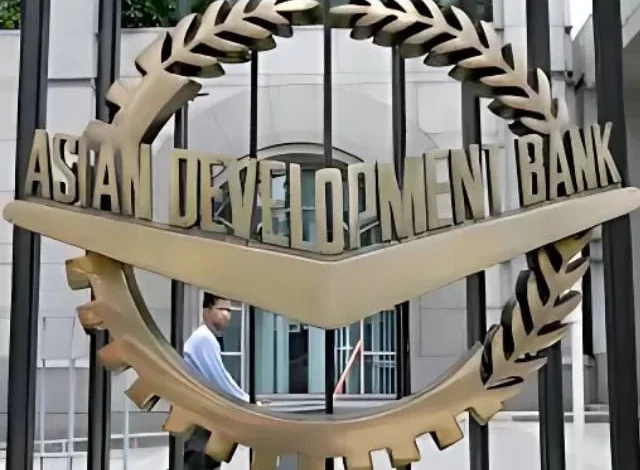The ADB disregards India to authorize a loan for Pakistan.

On Tuesday, the Asian Development Bank (ADB) sanctioned a $800 million financing package for Pakistan to improve tax collection and offer guarantees for obtaining foreign commercial loans, dismissing Indian objections.
The Manila-based lender maintained its impartiality by prohibiting the platform’s use for settling political grievances by India. The ADB faced pressure from India to withhold approval of the financing package; nevertheless, as a founding member, Pakistan has the right to obtain loans by meeting the stipulated conditions.
The ADB’s local office stated on Tuesday that the lender sanctioned a $800 million initiative to enhance fiscal sustainability and optimize public financial management in Pakistan.
The lender announced the approval of a $300 million loan for the Improved Resource Mobilisation and Utilisation Reform Programme, along with the first policy-based guarantee of up to $500 million, anticipated to mobilise up to $1 billion in financing from commercial banks.
India has failed to obstruct Pakistan’s external loans for the second time in three weeks, first with the International Monetary Fund (IMF) and subsequently with the Asian Development Bank (ADB).
The Indian executive director tried to block the funding on political grounds. The Pakistani executive director informed the board that, according to Pakistani authorities, India was funding terrorism in Balochistan and Khyber Pakhtunkhwa.
The situation occurred after India successfully delayed the approval of the $800 million funding package from the ADB for Pakistan by five days, utilizing a loophole in the regulations.
The Pakistani authorities indicated that the Indian executive director highlighted Pakistan’s significant indebtedness and claimed that the funds might be utilized for reasons other than those declared. The Pakistani executive director stated that India’s debt was unsustainable in comparison to Pakistan’s. The Indian debt-to-GDP was 80.4% of GDP compared to Pakistan’s 73.6%, according to the IMF’s data.
The Pakistani executive director informed the board that India was inciting terrorism in Pakistan by financing terrorists in Balochistan and Khyber-Pakhtunkhwa (K-P).
The board was informed that questioning the use of ADB’s money for unintended objectives implied a critique of the lender’s financial management and indicated a lack of trust.
The board was apprised that Pakistan possessed the requisite means and resources to safeguard its national integrity, as demonstrated during the four-day conflict last month.
Pakistan downed six Indian jet fighters, including Rafaels, during the conflict. The Indian chief of defence staff admitted last week that Pakistan did shoot down Indian jets but he did not disclose the number and the name of the planes.
The ADB board was also apprised that Kashmiris were fighting for their right to self-determination and India should not blame Pakistan.
Prime Minister’s Narendra Modi’s war hysteria has brought over seven-decade old unresolved issue of Kashmir into the global political and economic discourse. However, Pakistan needs to put its economic house in order by minimising reliance on foreign lenders and consultants. Many Indians work in these multilateral institutions.
There is now a high time that the government should reduce its reliance on the foreign loans, particularly on budget support loans. The ADB’s $800 million package is not meant for any development purposes and the money and guarantees will be used to build the foreign exchange reserves.
The government had reached an understanding with two foreign commercial banks for a $1 billion loan on the back of the ADB’s guarantees due to its low credit rating. The final term sheet and loan disbursement are subjected to the approval of the ADB’s $500 million guarantee.
Pakistan’s gross reserves stand at $11.5 billion, which the government wants to increase to over $14 billion by the end of June. The ADB will charge a nominal upfront fee for giving the guarantee.
Despite a recent rating upgrade, Pakistan’s credit rating still remains low at B-Negative, which is two notches below the investment grade. Fitch upgraded Pakistan from a substantial default risk to a high risk of default rating.
The ADB’s $300 million policy loan is the second tranche under the Resource Mobilisation Programme, which the government wants to take for improving the tax collection by the Federal Board of Revenue (FBR). Pakistan had met all the prior conditions for securing the second loan tranche from the ADB.
“Pakistan has made significant progress in improving macroeconomic conditions,” said ADB Country Director for Pakistan Emma Fan. She added that the new $300 million programme backed the government’s commitment to further policy and institutional reforms that would strengthen public finances and promote sustainable growth.
“The programme supports far-reaching reforms to improve tax policy, administration, and compliance, while enhancing public expenditure and cash management,” stated the ADB. “It also promotes digitalisation, investment facilitation, and private sector development,” it added.
These measures aim to reduce Pakistan’s fiscal deficit and public debt, while creating space for social and development spending. The ADB said that the new programme is underpinned by a comprehensive support package — including technical assistance and close coordination with development partnersdesigned to help Pakistan build long-term fiscal resilience and stability.